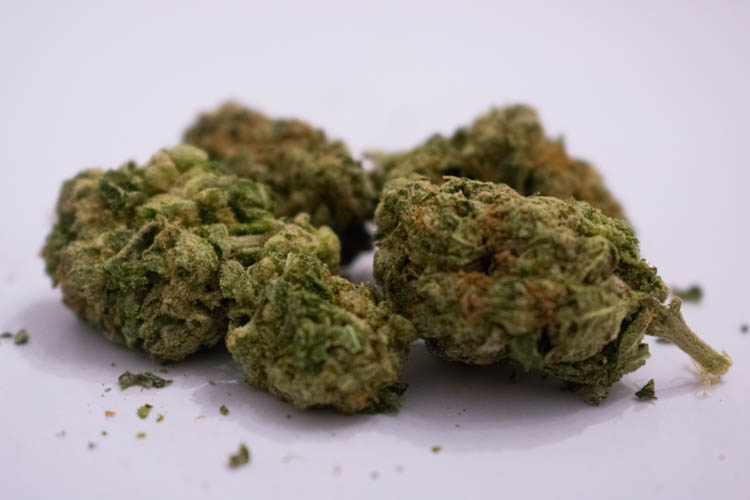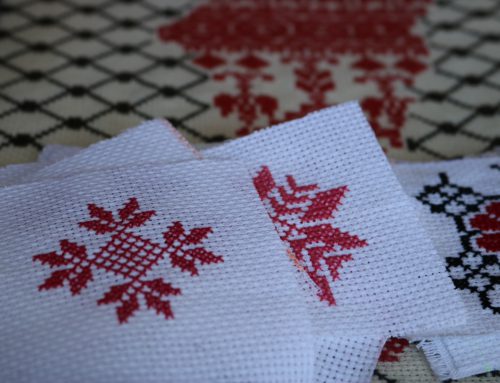Words: Immanuel Matthews and Savanna Craig
Photography: Immanuel Matthews
Twenty-seven-year-old Adrian Stewart has taken an interest in creating cannabis-based edible treats for recreational use. Stewart, who is a cook by trade, developed his technique to make edibles at home with his culinary knowledge.
While Stewart’s irregular digestive issues prevent him from actually consuming many of his own creations, helping others is often the motivation behind his treats.
Stewart has a 55-year-old friend who looked to cannabis for relief from two hernias that caused him chronic pain–especially at his office job. It was the discrete nature of non-smokable products that gave him the relief he needed to go to work every day.
The legalization of smokable recreational weed controlled by the government has been in effect since last October. For now, these laws cover only dried and fresh plants, seeds and oils. In Quebec, the Société québécoise du cannabis (SQDC) is the only organization legally allowed to sell these products.
For Stewart, the government’s rulings on weed have left a bad taste in his mouth.
“I can understand why Quebec wants to monopolize the market, but it honestly hurts my heart,” he said. “A lot of work has gone into advocacy and the evolution of this industry, but all the people who’ve sacrificed things and worked for years are forgotten.”
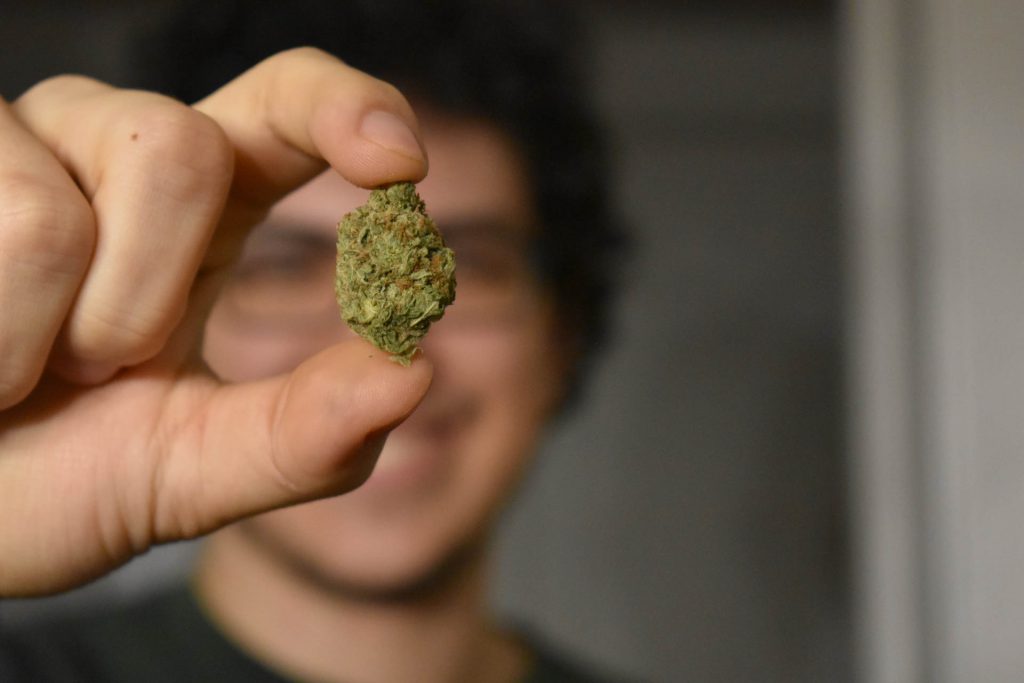
Ethan Benabou makes his own cannabis butter as an alternative to smoking.
A second wave of legalization is planned for no later than Oct. 17, 2019 according to Health Canada. This will include edible cannabis, cannabis extracts and cannabis topicals. The federal government ran consultations to seek public and entrepreneurial input on marijuana edibles. People were able to provide input to the government via written or online submissions up until Feb. 20, 2019. Now, some Montrealers are eagerly waiting to see what the upcoming laws will mean for the city.
“More education is needed on [edibles],” said Stewart, who obtained a medical cannabis license more than a year ago. “People might misuse them once, underestimate their strength, and never go back to them.”
Ethan Benabou, a biology student at Concordia University, creates and consumes his own cannabis butter for recreational use as an alternative to smoking dried cannabis. He said cannabis provides a way for him to relax or have fun amidst a busy schedule. However, the fitness enthusiast prefers alternatives to the most common form of cannabis consumption – smoking.
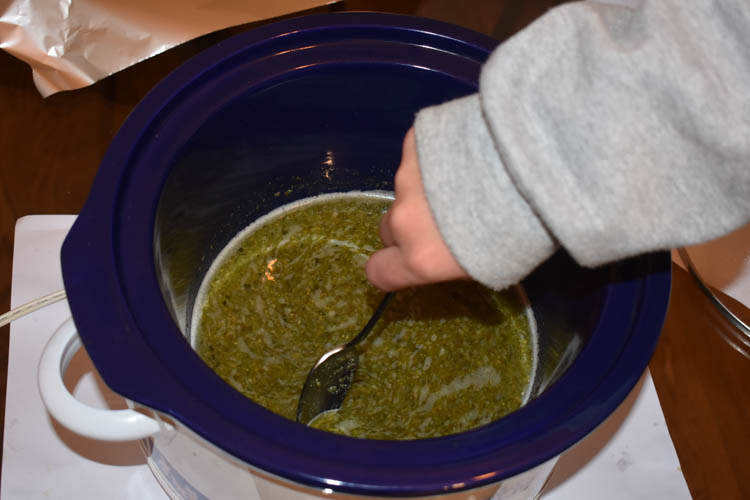
After hours of simmering, the cannabis butter mixture is strained to extract the cannabinoids.
“Once you cook your weed butter or make your edibles, you don’t need to grind and roll it every time you want to consume it. It’s a lot more efficient,” said Benabou.
These two men may have to wait some time before the types of non-smokable products they make at home can be legally sold in the province.
“Quebec, they really want to be hard on cannabis,” said Jean-Patrick LaFlamme, the vice president of public affairs and communications for the Quebec Food Processing Council.
LaFlamme said entrepreneurs are really concerned for the public’s safety when it comes to food-borne illnesses. Other concerns include inaccurate labeling of the quantities of tetrahydrocannabinol, known as THC, or cannabidiol, known as CBD, within their products.
“That’s why [the government wants] to keep it away from people who are doing it in their kitchens without any rules and the regulations, without any certifications and licenses,” said LaFlamme. “They want to make sure that people who are eating it are eating the right things with the right recipes.”
LaFlamme added entrepreneurs in the edible market are especially concerned about irregularities within products.
“It’s all a matter of recipe and making sure that what you’re eating is exactly what’s written on the label,” said LaFlamme.
Health Canada released its draft regulations in December 2018, which identified three classes of cannabis, including edible cannabis, cannabis extracts and cannabis topicals.
According to these regulations, all three classes will need to be sold in child resistant and plain packaging. Both edibles and extracts will not be allowed to exceed 10 milligrams of THC per unit, while topicals will be capped at 1,000 milligrams of THC per unit. The draft regulations prohibit health claims on all product packaging.
In addition, producers will need to avoid colourants and sweeteners within extracts. The draft regulations also prohibit adding nicotine to cannabis products, while extracts must be produced under strict manufacturing and quality controls.
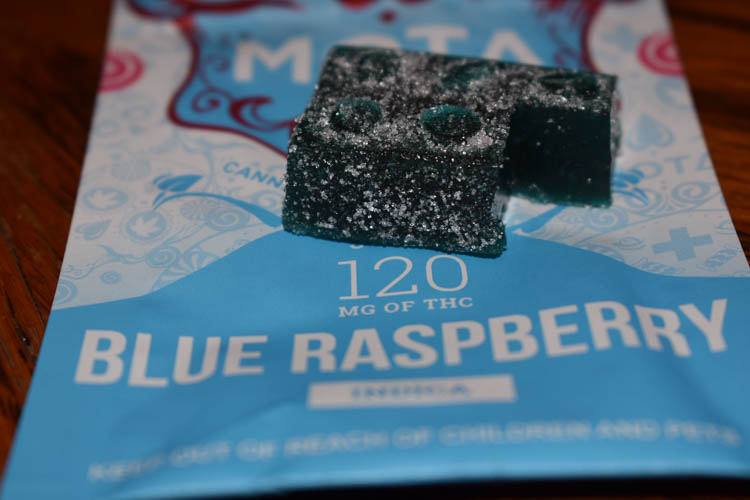
Legalization of cannabis edibles, like gummies, is expected for October 2019. The federal government is being cautious, especially when it comes to issues of recommended dosages and child safety.
“Before positioning itself, the Quebec government will have to carry out an extensive analysis of these products, particularly with regard to their impact on health, predisposition to cannabis use, particularly among young people and young adults, as well as to ensure the following of federal regulations,” said Marie-Claude Lacasse, media relations representative for the provincial Ministry of Health and Social Services.
According to Lacasse, the federal government started to draft the regulations this year. However, she says we can’t presume the outcome for both the provincial and federal governments.
”Furthermore, as these products will contain cannabis, only the SQDC could sell them,” said Lacasse.
Despite the SQDC having a monopoly over all cannabis distribution in Quebec, some local business owners are optimistic about the effects future legislation will have on their livelihoods.
“Cannabis legalization is long overdue,” said Christopher Mennillo, the vice president and co-owner of Prohibition, a head shop with various locations throughout Canada, including in Montreal.
Mennillo said Prohibition is interested in stocking more marijuana products. “We would like to sell all derivative products, ideally,” he said. “Not legalizing edibles is a missed opportunity.”
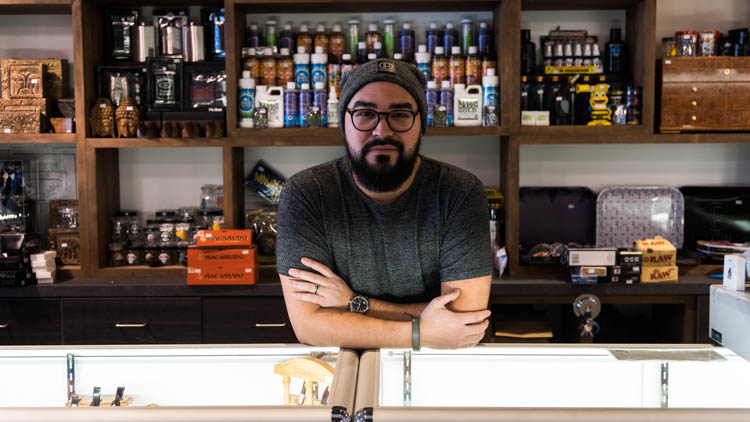
Christopher Mennillo, co-owner of Prohibition, says not legalizing edibles is a missed opportunity. (Courtesy of Christopher Mennillo)
Gabriella Gobbi, a McGill professor and researcher looking into the pain relief properties of CBD, however, is among those who have serious concerns about marijuana edibles.
She noted many products on the market are often mislabeled, or misrepresent the amount of CBD or THC they contain.
“There is research published on the Journal of the American Medical Association Network [where much of] the oil, cannabidiol, [is] sold on the internet—they don’t have the real percentage or the real dosage reported,” said Gobbi.
Citing a study conducted in 2017, Gobbi said she worries these issues in the industry can lead to users getting higher than they intend to.
While smokable cannabis has been legally available to Canadians for months now, the future market for edibles and other non-smokables is uncertain. Though, some are hopeful of what is to come.
“The possibilities for this industry are endless,” says Stewart. “With legalization and more research being done, [many] more kinds of products can be released. The medical and cosmetic potential is just huge.”
